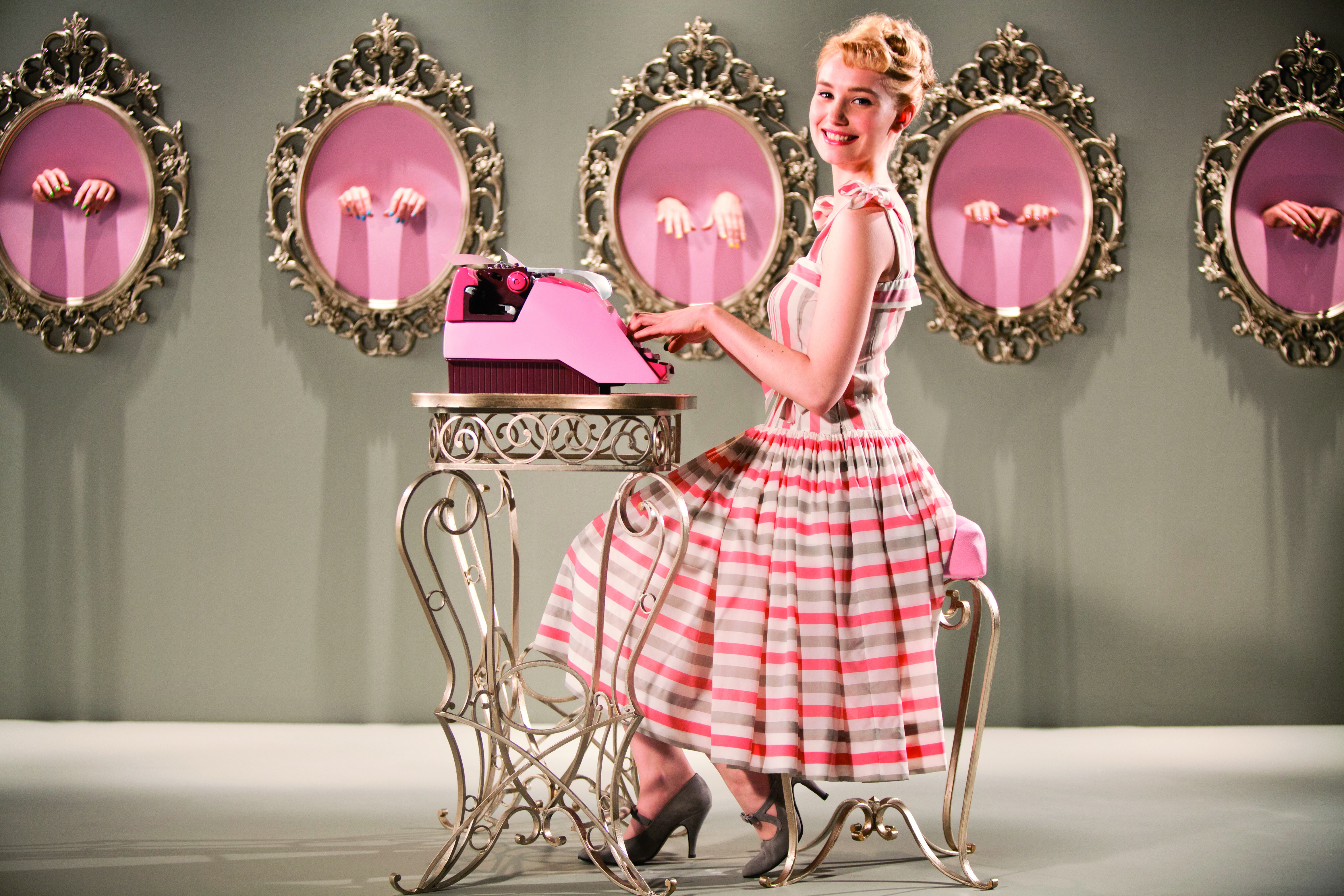Populaire
Runs Fri., Sept. 20–Thurs., Sept. 26 at Varsity. Rated R. 111 minutes.
They tried a decade ago to spoof the old Rock Hudson/Doris Day no-sex comedies in Down With Love, set in the early ’60s, with Ewan McGregor and Renee Zellweger trading a knowing leer for Hudson and Day’s subtle wink. The movie half-worked; then Mad Men came along, taking ownership of our postwar nostalgia with sex, alcoholism, and neurosis added to the impeccable sets and costumes.
The French Populaire, set in the late ’50s, arrives unsteadily between those poles of cotton-candy innocence and bourbon-soaked experience. Director Regis Roinsard loves the period details, perhaps too much to lampoon them. In a provincial village, Rose (Deborah Francois), a humble shop owner’s daughter, hopes to land a modern new secretarial job with an insurance broker in the nearest town. Rose thinks herself very nicely attired when she arrives to interview, finding a room full of women who’ve studied the fashion magazines far more closely than she. Some even wear fake eyeglasses to compound smart with chic, but Rose is as guileless as a daisy. Until she starts typing to impress her prospective boss Louis (Romain Duris), when it turns out Rose is a demon at the keys.
What ensues in their predictable Pygmalion romance, as Louis trains Rose to become the speed-typing champ of France, certainly looks great. The nightclubs and suburban kitchens have a slightly unreal sheen, like postcards printed too bright. Duris, of Heartbreaker and The Beat That My Heart Skipped, wears his slim-cut suits with a tiger’s predatory grace. Francois flounces around in her country frocks until Rose’s success graduates her to cover-girl glamour, accessorized with pink typewriter. The cars, furniture, and even the food appear as if from family photo albums taken during the de Gaulle era.
So why isn’t Populaire more fun? Unforgivably, for a movie about speed, it’s way too long and slow for a romantic comedy. The training montages and typing contests drag on redundantly; and Louis’ realization that, yes, Rose is the girl for him is obvious midway through the story. Again, it feels as though Roinsard can’t let go of the old family album; he wants us to study every page and photo. Populaire’s chief pleasures lie in its grace notes: smug Louis’ comic look of vexation; his American pal Bob’s broad Ohio-French accent; Rose staring daggers at her adversaries while swatting the carriage return with a boxer’s right hook. In this conventional love story with a conventional ending, there’s something unexpressed and almost angry within Rose—that the world isn’t treating her fairly. She learns to type by copying the classics of the French canon, all of them written by men.
bmiller@seattleweekly.com








